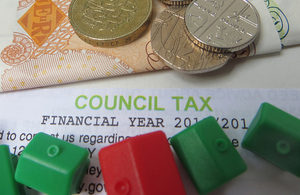Half a million vulnerable UK families have not received government support since October

Up to half a million of the UK’s most vulnerable families have been left without government support to pay their energy bills since October. An estimated 1.3 million vouchers for homes with prepayment meters have been either lost, delayed or unclaimed. According to Guardian analysis, these households will have missed out on a staggering £80 million of government help since the scheme launched. Having received multiple warnings from charities, the government are under scrutiny that the poorest UK families are still not getting the support they need to get through the toughest months of the energy crisis. It is now predicted that 8.4 million households could be in fuel poverty when the Energy Price Cap Guarantee comes to an end in April.
Mark Sait, CEO and founder of the UK’s leading sustainability and energy-saving platform, SaveMoneyCutCarbon, comments on how the ending of the Energy Price Cap Guarantee will impact UK households and how people can go about reducing their energy usage to save money this winter:
“Although the cap will remain in April 2023, the cap only relates to the unit price. So, the maximum your energy company can charge you is for your unit of energy. What they are doing is capping the unit price, not how much you can use. This messaging can be confusing to consumers as although the cap remains, it still means we ought to be changing how we use our energy.
“There are so many different grants and government schemes that people can access that it can get confusing knowing where to begin. I recommend going to Citizen’s Advice as a place to start. What the public really needs, however, is clear and transparent guidance and support.
“What needs to happen is finding a way to be smarter with energy use. This can start with the least cost-effective way – behaviour. I.e. not just turning your heating off but checking when your timer is set, and switching off appliances/boilers that aren’t in use. Other things such as switching appliances off at the mains. We found in our recent national study that an alarming 62% of Brits agreed that they did not know that leaving their appliances on standby accounts for 6% of the average household energy bill.
“Or, it can be low-cost, sustainable swaps. The most obvious is a swap to the LED lightbulb – you will be using fewer energy units and it will be a big saving. Small changes make a big difference. Not everyone can afford big solar panels, electric cars and so on, so education, behaviour change, community and coming together will make the biggest difference. There’s always more to be done on our end – people just need the facts to know where to begin.”
In April 2023, millions of households will see their energy bills go up by hundreds of pounds a year, however, it was announced in the recent Autumn Statement that help will be limited. A household using a typical amount of gas and electricity will pay £3,000 annually, up from £2,500, as the Energy Price Guarantee rises.




